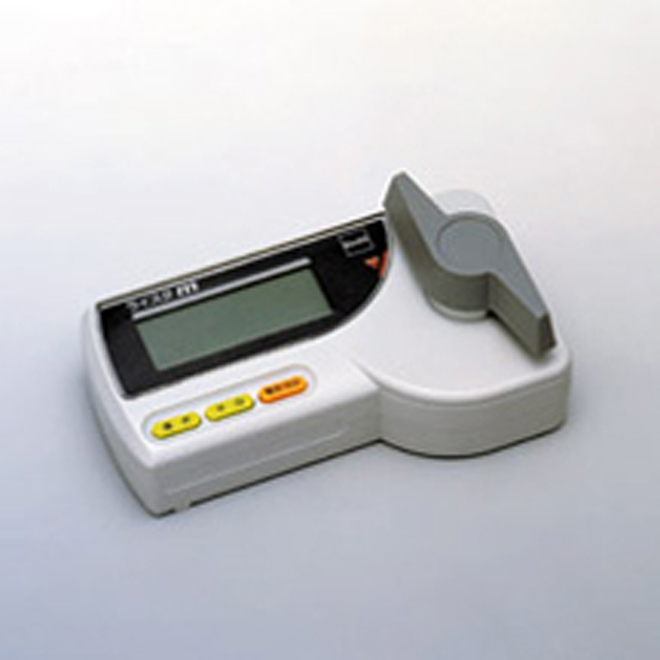The Ultimate Guide to Choosing the Right Moisture Meter for Your Demands
The Ultimate Guide to Choosing the Right Moisture Meter for Your Demands
Blog Article
The Ultimate Overview to Moisture Meters: A Comprehensive Introduction and Just How They Can Save You Money
In the world of building maintenance, building and construction, and various industries, the significance of precisely determining wetness degrees can not be overemphasized. Dampness meters act as crucial devices in finding and monitoring moisture web content in products, aiding in protecting against pricey damages and ensuring the high quality of products. Understanding the nuances of different sorts of dampness meters, their applications, and the potential cost-saving advantages they offer can be a game-changer for specialists and organizations alike. Discovering how these tools can not just simplify processes yet likewise contribute to monetary cost savings is a trip worth embarking on.
Kinds of Moisture Meters
Various kinds of dampness meters are readily available for various applications in different industries. One typical type is the pin-type moisture meter, which determines the electrical resistance in between 2 pins inserted into a product. This type appropriates for timber, drywall, and other structure products. Pinless dampness meters, on the other hand, use electro-magnetic sensor plates to scan a larger location without causing damages to the material's surface area. These meters are perfect for promptly evaluating moisture degrees in large locations such as floors and walls.
Furthermore, there are likewise specialized moisture meters made for details products like grain, dirt, or hay. These meters provide precise wetness analyses customized to the one-of-a-kind buildings of the product being evaluated. Infrared wetness meters determine the thermal buildings of a product to establish its dampness web content non-invasively, making them valuable for applications where pin or pinless meters might not be ideal. Understanding the various kinds of dampness meters readily available can aid markets select the most ideal device for their details wetness measurement needs.

Advantages of Utilizing Moisture Meters

Moreover, using wetness meters can result in enhanced energy performance. By recognizing areas with high wetness levels, such as leakages or bad insulation, changes can be made to enhance power preservation and minimize utility expenses. In agricultural settings, moisture meters play a crucial role in maximizing crop yields by enabling farmers to keep track of dirt wetness levels and make notified irrigation choices. In general, the benefits of utilizing moisture meters cover across numerous markets, offering cost-effective services and promoting far better quality assurance practices.
How to Select the Right Moisture Meter
Choosing the ideal moisture click site meter includes considering essential factors such as material compatibility, dimension variety, and calibration accuracy. When selecting a dampness meter, it's important to ensure that the meter appropriates for the certain product you will be screening. Different products have differing electrical properties that can influence moisture readings, so picking a meter developed for your material is essential for exact results. In addition, think about the dimension variety of the dampness meter. Ensure that the meter can detect dampness levels within the range needed for your applications. Calibration accuracy is an additional essential element to maintain in mind (Moisture Meter). Go with a wetness meter with trusted calibration to guarantee constant and specific readings. Some meters might require regular calibration modifications, so understanding the calibration procedure is necessary. By carefully assessing these elements, you can select a wetness meter that satisfies your needs and provides accurate wetness measurements for your tasks.
Proper Techniques for Moisture Meter Use
To guarantee exact wetness analyses and maximize the efficiency of a moisture meter, using appropriate techniques is crucial. When utilizing a pin-type moisture meter, insert the pins or probes into the material being tested till they make full call. By complying with these proper methods, users can depend on their dampness meter to offer reliable moisture degrees, assisting in stopping pricey damage or making sure quality in numerous applications.

Cost Financial Savings With Moisture Meter Applications
Exactly how can the strategic utilization of wetness meters lead to significant expense savings next page throughout different sectors? In the farming sector, dampness meters aid in figuring out the optimum time for collecting plants, protecting against excess or over-drying dampness that can affect the last item's high quality.

Furthermore, in the food processing sector, dampness meters are crucial for monitoring product quality and ensuring conformity with safety and security laws. By properly gauging wetness material in food, manufacturers can prevent wasting, preserve quality, and decrease waste, resulting in significant price financial savings. In general, the tactical application of dampness meters is a valuable financial investment that can cause substantial cost decreases and enhanced performance throughout different sectors.
Final Thought
In verdict, moisture meters are useful devices for gauging and spotting wetness degrees in various materials. By using the appropriate moisture meter and adhering to proper methods, customers can effectively avoid expensive problems created by excess dampness.
Moisture meters offer as essential tools in finding and monitoring moisture content in materials, helping in stopping pricey damages and guaranteeing the high quality of items. Infrared wetness meters determine the thermal homes of a product to identify its wetness material non-invasively, making them useful for applications where pin or pinless meters may not be suitable.Moisture meters offer important advantages in accurately evaluating and keeping track of dampness degrees in varied materials and environments. In agricultural setups, dampness meters play a critical role in maximizing plant returns by making it possible for farmers to keep an eye on dirt wetness levels and you could look here make informed watering choices.In conclusion, moisture meters are important tools for measuring and detecting dampness degrees in different materials.
Report this page